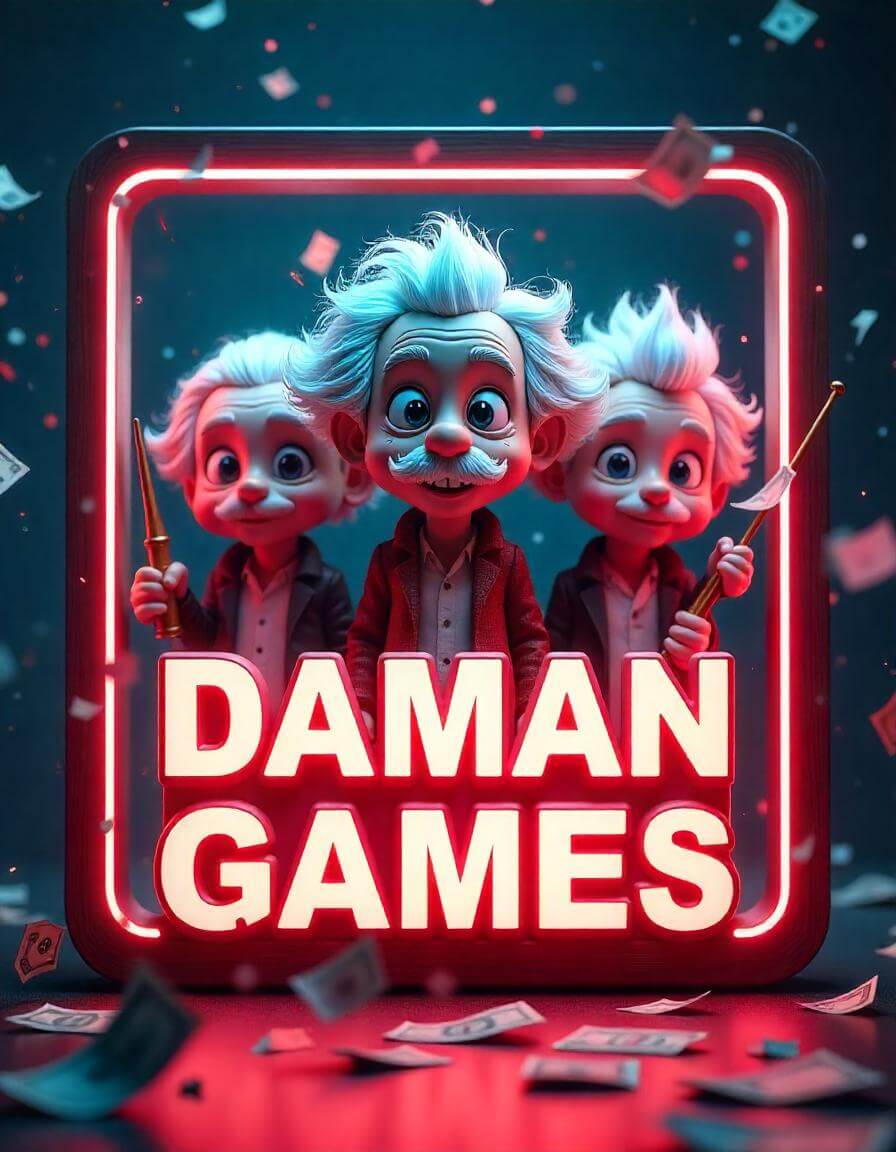Online gaming architecture has changed heavily in the last ten years, with most games featuring some element of microtransactions, online betting, or even a lottery style reward system. One of the most recognized platforms that provides such services is the DamanGame, a platform that also blends online betting with gaming services. DamanGame Lottery 2025 is now on its way. As its popularity increases, so does the controversy on microtransactions and online lotteries in gaming. As such, this paper seeks to address these ethical concerns, the impact of these features on players, and the whole gaming industry as a whole.
Grasping DamanGame Lottery 2025
DamanGame Lottery 2025 is an extension to the expansive world of gaming where players buy rewards and lottery tickets in exchange for in-game perks. Users of the system can spend their money to buy entries into different accounts and can win in-game currency or real money. This model is known for being used in a number of online games, so the ethical debates concerning fairness, transparency, and the risk of gambling addiction are all valid questions.
Why more people prefer online lotteries over traditional means
People are drawn to lotteries primarily for the thrill of the unknown. The idea of putting in very little effort but potentially winning amazing amounts is very enticing. Players are motivated to play games with these mechanics because they consider them interesting and challenging. However, once cash transactions are incorporated into the equation, the definition of a ‘gamer’ becomes blurry and does not paint a good picture.
The Problems of Ethics Surrounding Microtransactions and Online Lotteries
- Gambling With a Facade
One of the primary ethical concerns regarding DamanGame Lottery 2025 is that it resembles illegal online gambling. Players who interact with these online platforms, including DamanGame, often spend money hoping to get reward that far exceeds what they spent. The system is promoted as many things and a lot of profit can be made, however it ultimately results in problem gambling.
- The Exploitation of Weak Players
There are many ways on the internet to make purchases on the spot without restrictions and within seconds, which is why older audiences and youngsters cope with the online lottery and microtransaction problem quite easily. Gamers have literally zero control over these purchases thanks to simple clickbait strategies. Certain elements such as the psychology associated with ‘near-miss’ winning poses cognitive biases, to which players end up giving up their money.
- Lack of Transparency
One of the ethical problems within gaming focused on lottery tickets is the way winners are chosen. A lot of them, such as DamanGame, do not specify the precise winning chances. This vagueness raises questions about fairness and whether these systems are set up to guarantee a certain fixed percentage of losses, as is the case with casino games.
- Encouragement of Excess Spending
Microtransactions or online lottery games, unlike physical shopping, encourage users to spend without any form of moderation. A lot of gaming platforms employ aggressive marketing strategies like Flash sales, cashback rewards for bulk spending, and even Special Clients programs, which might make players overspend or use a budget they didn’t plan to use.
- Legal and Regulatory Issues
Online games with microtransactions or lotteries usually function in a semi-legal space. While most governments regulate traditional gambling with strict laws, in game lotteries and loot boxes are not always equally examined. This creates opportunities for businesses seeking to exploit the absence of regulation and all the limitations that painstakingly restrict casinos and betting firms.
Industry Responses and Possible Solutions
- Limitations on the Use of In-Game Lotteries
Some governments and regulatory authorities are now attempting to curb abuses of microtransactions and online lotteries. Countries have enacted laws that compel companies to state the chances of winning in machines of chance. Similar demands concerning the coverage of winnings from platforms like DamanGame Lottery 2025 would foster greater accountability and guard against these predatory practices.
- Age Restrictions and Spending Loopholes
Younger customers are the most susceptible to exploitative gaming practices. Therefore, more strict age verification procedures would need to be put into place, as well as tighter caps on spending. While some gaming platforms have built parental controls, there is need for hard caps on spending and even mandatory social breaks to limit the impact of gaming.
- Fairness Game Design Principles
Video gaming companies should broaden the focus of the game design processes by integrating unfair play and human welfare. Rather than encouraging through the use of spending-based mechanics, these developers are free to redistribute items these players earned through achievements, not draws.
- Greater Understanding and Consciousness
Gradually educating players about the threats posed by online lotteries and microtransactions is a necessary step toward responsible gaming. The same awareness campaigns implemented for responsible gambling practices should be used to teach players about the psychological maneuvers employed in these games as well as in-game spending control.
- Grassroots Campaigns in Gaming by Players
Gamers have always had a say when it comes to video games and their consumption. Over the past few years, a number of gaming communities have fought for better business ethics in microtransactions by not playing and purchasing games that use monetization practices and supporting games that use low or no monetization practices. If players continue towards this path, gaming companies will be forced to change their policies regarding in game lotteries.
The Evolution of DamanGame Lottery and Such Systems
As time passes, the gaming industry will strategize on the ethical side of microtransactions and online lotteries. Certain ethics remain questionable with popularity-driven services such as DamanGame Lottery 2025 because they exploit chances to provide more serious consideration. With the boom of online gaming, more focus should be placed on the game without gaming out the players in terms of finances.

Conclusion
The growth of microtransactions and online lotteries within gaming spaces has transformed the industry with new opportunities and novel ethical dilemmas. As with DamanGame Lottery 2025, these mechanisms serve as great examples of how players can be engaged, but they also carry potential threats in terms of gambling, sufficiency of information, and the overall health of the players. When dealing with these concerns, regulators, developers, and players alike need to emphasize fairness, responsibility, and ethical monetization in games. Through sufficient rules, proper game designs, and educational dissemination the gaming industry can achieve a more sustainable and player friendly future.



